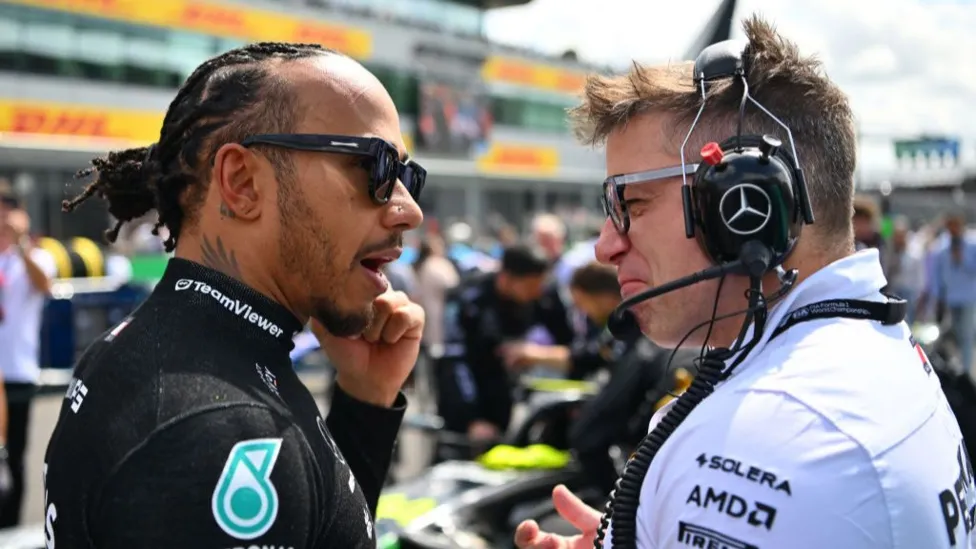Lewis Hamilton has spoken out over the plight of refugees and displaced people in Africa, decrying the lack of empathy toward them in the UK. He pledged to consider what he could do to support them after an emotional visit to the continent during the Formula One summer break.
Hamilton was speaking before this weekend’s Dutch Grand Prix, the first since the sport shut down for the summer, during which period the British driver travelled in Africa, visiting Senegal and Morocco and then the Maratane refugee settlement in the north of Mozambique, where he saw the work of the UN refugee agency, the UNHCR.
Mercedes driver Lewis Hamilton
George Russell’s Belgian F1 GP disqualification hands Lewis Hamilton victory
Read more
When asked if the plight of refugees was not sufficiently recognised in the UK, the seven-time world champion was unequivocal.
“1000%. If you don’t see it and experience it or speak to someone who has been seriously affected by it, you couldn’t even imagine. We need more empathy for it for sure,” he said. “I’ve been to Africa before so it’s not the first time I have been shocked by it. It gets me working my mind. It’s great to see organisations like the UNHCR who do amazing work and so I think: ‘How can I get on board, how can I help?’ So that’s now what I am trying to do.”
The UNHCR cites Mozambique as being home to over 33,000 refugees and asylum seekers and more than 830,000 displaced people, because of conflicts and natural disasters. Hamilton, who has been outspoken on social issues including equality and diversity in the past and invested in projects to improve both in F1, said the experience had a profound effect.
“I am still digesting the trip, going to a refugee camp and seeing the work being done there, how people who are displaced are affected,” he said. “It’s one thing reading about it or being on the news but actually seeing or speaking to kids who are walking 10km to school to get an education then walking 10km back.
“They have tough lives over there and it is mostly women and children that are affected the most. There wasn’t a lot of men because they are either killed or taken in the different conflict areas. That was really heavy to see and experience.”
Displaced people from the province of Cabo Delgado gather to receive humanitarian aid from the World Food Program (WFP) in Mozambique.
View image in fullscreen
Displaced people from the province of Cabo Delgado gather to receive humanitarian aid from the World Food Program in Mozambique. Photograph: Alfredo Zuniga/AFP/Getty Images
Hamilton also reiterated his long-held belief that it was time F1 hosted a race in Africa. “We can’t be adding races in other locations and continue to ignore Africa, which the rest of the world takes from. No one gives anything to Africa,” he said.
“There’s a huge amount of work there that needs to be done. I think a lot of the world that haven’t been there don’t realise how beautiful the place is and how vast it is. Having a grand prix there would really be able to highlight how great the place is and bring in tourism and all sorts of things. So why are we not on that continent?”
On Thursday in Zandvoort, Max Verstappen also suggested he could call time on his career in Formula One when his current contract with Red Bull ends in 2028. The world champion will compete in his 200th race at this weekend’s GP, his home race, where he admitted his enjoyment of the sport would play a key role in deciding his future.
The 26-year-old driver enters the second half of the season looking to secure his fourth F1 world championship in his 10th season but was explicit that he felt the bulk of his career was already complete. When asked if he expected to compete in another 200 races he was blunt.

